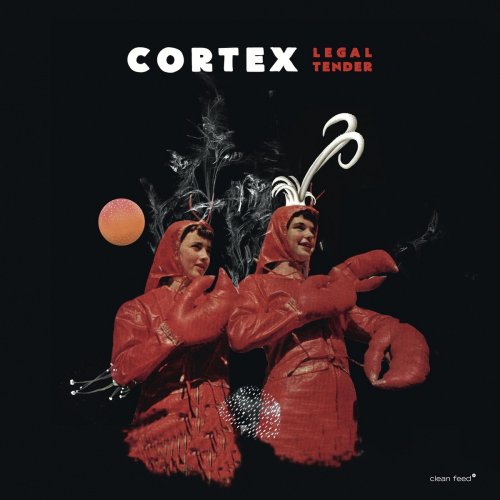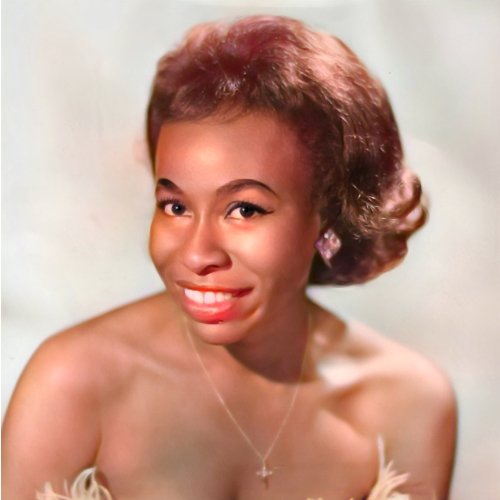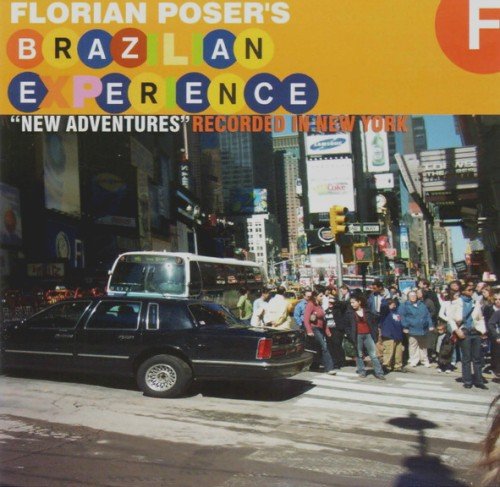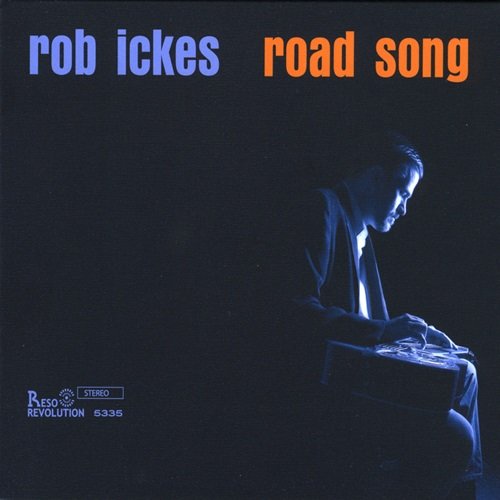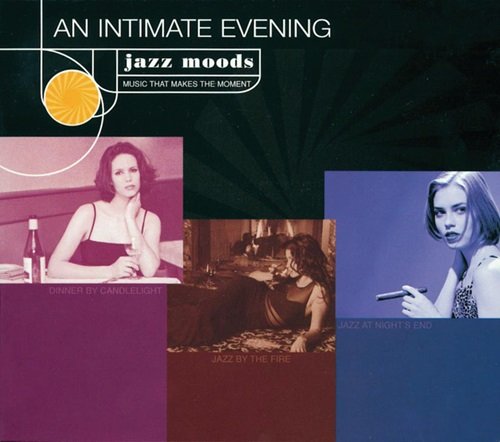The Stylistics, The Chi-Lites, Harold Melvin & The Blue Notes - Three Of A Kind (2008)
- 08 Jul, 17:41
- change text size:
Facebook
Twitter
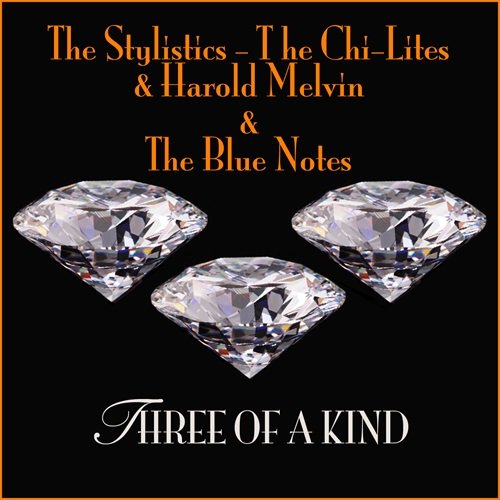
Artist: The Stylistics, The Chi-Lites, Harold Melvin & The Blue Notes
Title: Three Of A Kind
Year Of Release: 2008
Label: Goldenlane Records
Genre: Soul, R&B, Funk
Quality: Mp3 320 / Flac (tracks)
Total Time: 52:43
Total Size: 129/356 Mb
WebSite: Album Preview
Tracklist:Title: Three Of A Kind
Year Of Release: 2008
Label: Goldenlane Records
Genre: Soul, R&B, Funk
Quality: Mp3 320 / Flac (tracks)
Total Time: 52:43
Total Size: 129/356 Mb
WebSite: Album Preview
01. The Stylistics - Betcha By Golly Wow 4:15
02. The Stylistics - I'm Stone In Love With You 3:14
03. The Stylistics - Heavy Fallin' Out 3:11
04. The Stylistics - You're A Big Girl Now 2:44
05. The Stylistics - Stop, Look, Listen To Your Heart 3:30
06. the Chi-Lites - Oh Girl 2:59
07. the Chi-Lites - Have You Seen Her 4:47
08. the Chi-Lites - Give More Power To The People 3:00
09. the Chi-Lites - A Letter To Myself 4:09
10. the Chi-Lites - We Are Neighbors 3:25
11. Harold Melvin & The Blue Notes - If You Don't Know Me By Now 3:35
12. Harold Melvin & The Blue Notes - The Love I Lost 3:33
13. Harold Melvin & The Blue Notes - Satisfaction Guaranteed 3:19
14. Harold Melvin & The Blue Notes - Wake Up Everybody 3:31
15. Harold Melvin & The Blue Notes - For The Love Of Money 3:32
The Stylistics:
After the Spinners and the O'Jays, the Stylistics were the leading Philly soul group produced by Thom Bell. During the early '70s, the band had 12 straight Top Ten hits, including "You Are Everything," "Betcha by Golly, Wow," "I'm Stone in Love With You," "Break Up to Make Up," and "You Make Me Feel Brand New." Of all their peers, the Stylistics were one of the smoothest and sweetest soul groups of their era. All of their hits were ballads, graced by the soaring falsetto of Russell Thompkins, Jr. and the lush yet graceful productions of Bell, which helped make the Stylistics one of the most successful soul groups of the first half of the '70s.
The Stylistics formed in 1968, when members of the Philadelphia soul groups the Monarchs and the Percussions joined forces after their respective band dissolved. Thompkins, James Smith, and Airrion Love hailed from the Monarchs; James Dunn and Herbie Murrell were from the Percussions. In 1970, the group recorded "You're a Big Girl Now," a song their road manager Marty Bryant co-wrote with Robert Douglas, a member of their backing band Slim and the Boys, and the single became a regional hit for Sebring Records. The larger Avco Records soon signed the Stylistics, and single eventually climbed to number seven in early 1971.
Once they were on Avco, the Stylistics began working with producer/songwriter Thom Bell, who had previously worked with the Delfonics. The Stylistics became Bell's pet project and with lyricist Linda Creed, he crafted a series of hit singles that relied as much on the intricately arranged and lush production as they did on Thompkins' falsetto. Every single that Bell produced for the Stylistics was a Top Ten R&B hit, and several -- "You Are Everything," "Betcha by Golly, Wow," "I'm Stone in Love With You," "Break Up to Make Up," and "You Make Me Feel Brand New" -- were also Top Ten pop hits.
Following "You Make Me Feel Brand New" in the spring of 1974, the Stylistics broke away from Bell and began working with Van McCoy, who helped move the group towards a softer, easy listening style. In 1976, they left Avco and signed with H&L. The group's American record sales declined, yet they remained popular in Europe, particularly in Great Britain, where "Sing Baby Sing" (1975), "Na Na Is the Saddest Word" (1975), "Can't Give You Anything" (1975), and "Can't Help Falling in Love" (1976) were all Top Five hits. The Stylistics continued to tour and record throughout the latter half of the '70s, as their popularity steadily declined. In 1980, Dunn left the group because of poor health, and he was followed later that year by Smith. The remaining Stylistics continued performing as a trio on oldies shows into the '90s.
After the Spinners and the O'Jays, the Stylistics were the leading Philly soul group produced by Thom Bell. During the early '70s, the band had 12 straight Top Ten hits, including "You Are Everything," "Betcha by Golly, Wow," "I'm Stone in Love With You," "Break Up to Make Up," and "You Make Me Feel Brand New." Of all their peers, the Stylistics were one of the smoothest and sweetest soul groups of their era. All of their hits were ballads, graced by the soaring falsetto of Russell Thompkins, Jr. and the lush yet graceful productions of Bell, which helped make the Stylistics one of the most successful soul groups of the first half of the '70s.
The Stylistics formed in 1968, when members of the Philadelphia soul groups the Monarchs and the Percussions joined forces after their respective band dissolved. Thompkins, James Smith, and Airrion Love hailed from the Monarchs; James Dunn and Herbie Murrell were from the Percussions. In 1970, the group recorded "You're a Big Girl Now," a song their road manager Marty Bryant co-wrote with Robert Douglas, a member of their backing band Slim and the Boys, and the single became a regional hit for Sebring Records. The larger Avco Records soon signed the Stylistics, and single eventually climbed to number seven in early 1971.
Once they were on Avco, the Stylistics began working with producer/songwriter Thom Bell, who had previously worked with the Delfonics. The Stylistics became Bell's pet project and with lyricist Linda Creed, he crafted a series of hit singles that relied as much on the intricately arranged and lush production as they did on Thompkins' falsetto. Every single that Bell produced for the Stylistics was a Top Ten R&B hit, and several -- "You Are Everything," "Betcha by Golly, Wow," "I'm Stone in Love With You," "Break Up to Make Up," and "You Make Me Feel Brand New" -- were also Top Ten pop hits.
Following "You Make Me Feel Brand New" in the spring of 1974, the Stylistics broke away from Bell and began working with Van McCoy, who helped move the group towards a softer, easy listening style. In 1976, they left Avco and signed with H&L. The group's American record sales declined, yet they remained popular in Europe, particularly in Great Britain, where "Sing Baby Sing" (1975), "Na Na Is the Saddest Word" (1975), "Can't Give You Anything" (1975), and "Can't Help Falling in Love" (1976) were all Top Five hits. The Stylistics continued to tour and record throughout the latter half of the '70s, as their popularity steadily declined. In 1980, Dunn left the group because of poor health, and he was followed later that year by Smith. The remaining Stylistics continued performing as a trio on oldies shows into the '90s.
The Chi-Lites:
One of the most popular smooth soul groups of the early '70s didn't hail from Philadelphia or Memphis, the two cities known for sweet, string-laden soul. Instead, the Chi-Lites were from Chicago, a town better known for its gritty urban blues and driving R&B. Led by vocalist Eugene Record, the Chi-Lites had a lush, creamy sound distinguished by their four-part harmonies and layered productions. During the early '70s, they racked up 11 Top Ten R&B singles, ranging from the romantic ballads "Have You Seen Her" and "Oh Girl" to protest songs like "(For God's Sake) Give More Power to the People" and "There Will Never Be Any Peace (Until God Is Seated at the Conference Table)." All the songs featured Record's warm, pleading tenor and falsetto, and the majority of the group's hits were written by Record, often in collaboration with other songwriters like Barbara Acklin. Although Record exited when the Chi-Lites were at their commercial peak, and was absent for roughly seven years, the group continued to regularly chart into the mid-'80s. Since Record's second departure in 1988, the Chi-Lites have been known primarily as a performing act, and remain led by lone surviving original member Marshall Thompson.
The Chi-Lites had been around for nearly a decade before they finally had a hit in the late '60s. Eugene Record, Robert "Squirrel" Lester, and Clarence Johnson formed the doo wop group the Chanteurs in the late '50s, and they released one single on Renee Records in 1959. Shortly afterward, Creadel "Red" Jones and Marshall Thompson, who had sung with the Desideros, teamed with the trio to form the Hi-Lites. Over the next four years, the Hi-Lites released a number of singles on local labels. In 1964, they changed their name to Marshall & the Chi-Lites, adding the "C" as tribute to their hometown Chicago. By the end of the year, Johnson had left the group and the remaining quartet truncated their name to the Chi-Lites. Over the next four years, the group continued to perform and release independent singles, with Record slowly emerging as the group's lead singer, songwriter, and producer.
In 1968, the Chi-Lites signed with the large Chicago indie label Brunswick Records, and early the following year "Give It Away" became their first national hit single, reaching number ten on the R&B chart. Despite the moderate success of "Let Me Be the Man My Daddy Was," the group wasn't able to deliver another big hit until "Are You My Woman? (Tell Me So)" climbed into the R&B Top Ten in early 1971, beginning a string of ten Top Ten hits that ran intermittently over the next four years. The follow-up to "Are You My Woman?," "(For God's Sake) Give More Power to the People," was their first pop hit, and was the title song on their first of four consecutive Top Ten R&B albums. It also set the stage for a pair of slow, soulful ballads, "Have You Seen Her" and "Oh Girl," which both reached number one on the R&B chart. The latter also topped the pop chart (in the spring of 1972).
Shortly after the release of the 1973 hit "Stoned Out of My Mind," the Chi-Lites splintered with the departures of Creadel Jones and Eugene Record. By the end of the year, Jones' role had been filled by Stanley Anderson, Willie Kinsey, and David "Doc" Roberson. David Scott and Danny Johnson also entered the picture. (The latter would leave in 1977, replaced by Vandy Hampton; Scott and Hampton would exit in 1980). A revamped Chi-Lites scored the Top Ten R&B hits "Homely Girl," "There Will Never Be Any Peace (Until God Is Seated at the Conference Table)," and "Toby" before Roberson joined. Brunswick then became involved in serious financial problems. This prevented the label from promoting a bankable group with four consecutive Top Ten R&B albums -- (For God's Sake) Give More Power to the People, A Lonely Man, A Letter to Myself, and Chi-Lites -- to go with their pile of hit singles. The Chi-Lites signed with Mercury and cut two albums for the label by before the close of the '70s.
The original lineup of the Chi-Lites, including Eugene Record, re-formed in 1980, and the group moved to 20th Century Fox subsidiary Chi-Sound. Their Chi-Sound singles were more successful than their Mercury sides, with "Hot on a Thing (Called Love)" reaching number 15 in 1982. The following year, they moved to the MCA-distributed LARC Records, where they had their final Top Ten hit with "Bottoms Up." Late that year, Creadel Jones retired and the group continued to tour throughout the remainder of the decade. Record left the group in 1988 and was replaced first by Frank Reed, and then by Anthony Watson. (Reed and Watson would fill Record's role on an alternating basis for over a decade.) Anchored by Marshall Thompson and Robert Lester, the Chi-Lites were a regular attraction on the oldies and soul circuits throughout the '90s, during which they also released a pair of albums. Jones died in 1994.
The Chi-Lites continued to tour in varying configurations over the next decades. Anthony Watson left the group for good in 2002. Frank Reed again took his place, performing with the group -- and taking part in the last Chi-Lites studio album, released in 2006, a year after Eugene Record died -- until his death in 2014. Robert Lester died in 2010. The likes of Tara Thompson, Fred Simon, Mack Miller, Marzette Griffin, and Warren Tipton have since joined lone surviving member Marshall Thompson to keep the Chi-Lites active into the 2020s. In addition to dozens upon dozens of covers and samples of their classics and deep cuts -- most famously, Beyoncé's "Crazy in Love" sampled "Are You My Woman? (Tell Me So)" -- the Chi-Lites' legacy has continued to be amplified with numerous honors. The Chi-Lites have been inducted into the Rhythm and Blues Foundation, the Vocal Group Hall of Fame, and the National Rhythm & Blues Hall of Fame.
One of the most popular smooth soul groups of the early '70s didn't hail from Philadelphia or Memphis, the two cities known for sweet, string-laden soul. Instead, the Chi-Lites were from Chicago, a town better known for its gritty urban blues and driving R&B. Led by vocalist Eugene Record, the Chi-Lites had a lush, creamy sound distinguished by their four-part harmonies and layered productions. During the early '70s, they racked up 11 Top Ten R&B singles, ranging from the romantic ballads "Have You Seen Her" and "Oh Girl" to protest songs like "(For God's Sake) Give More Power to the People" and "There Will Never Be Any Peace (Until God Is Seated at the Conference Table)." All the songs featured Record's warm, pleading tenor and falsetto, and the majority of the group's hits were written by Record, often in collaboration with other songwriters like Barbara Acklin. Although Record exited when the Chi-Lites were at their commercial peak, and was absent for roughly seven years, the group continued to regularly chart into the mid-'80s. Since Record's second departure in 1988, the Chi-Lites have been known primarily as a performing act, and remain led by lone surviving original member Marshall Thompson.
The Chi-Lites had been around for nearly a decade before they finally had a hit in the late '60s. Eugene Record, Robert "Squirrel" Lester, and Clarence Johnson formed the doo wop group the Chanteurs in the late '50s, and they released one single on Renee Records in 1959. Shortly afterward, Creadel "Red" Jones and Marshall Thompson, who had sung with the Desideros, teamed with the trio to form the Hi-Lites. Over the next four years, the Hi-Lites released a number of singles on local labels. In 1964, they changed their name to Marshall & the Chi-Lites, adding the "C" as tribute to their hometown Chicago. By the end of the year, Johnson had left the group and the remaining quartet truncated their name to the Chi-Lites. Over the next four years, the group continued to perform and release independent singles, with Record slowly emerging as the group's lead singer, songwriter, and producer.
In 1968, the Chi-Lites signed with the large Chicago indie label Brunswick Records, and early the following year "Give It Away" became their first national hit single, reaching number ten on the R&B chart. Despite the moderate success of "Let Me Be the Man My Daddy Was," the group wasn't able to deliver another big hit until "Are You My Woman? (Tell Me So)" climbed into the R&B Top Ten in early 1971, beginning a string of ten Top Ten hits that ran intermittently over the next four years. The follow-up to "Are You My Woman?," "(For God's Sake) Give More Power to the People," was their first pop hit, and was the title song on their first of four consecutive Top Ten R&B albums. It also set the stage for a pair of slow, soulful ballads, "Have You Seen Her" and "Oh Girl," which both reached number one on the R&B chart. The latter also topped the pop chart (in the spring of 1972).
Shortly after the release of the 1973 hit "Stoned Out of My Mind," the Chi-Lites splintered with the departures of Creadel Jones and Eugene Record. By the end of the year, Jones' role had been filled by Stanley Anderson, Willie Kinsey, and David "Doc" Roberson. David Scott and Danny Johnson also entered the picture. (The latter would leave in 1977, replaced by Vandy Hampton; Scott and Hampton would exit in 1980). A revamped Chi-Lites scored the Top Ten R&B hits "Homely Girl," "There Will Never Be Any Peace (Until God Is Seated at the Conference Table)," and "Toby" before Roberson joined. Brunswick then became involved in serious financial problems. This prevented the label from promoting a bankable group with four consecutive Top Ten R&B albums -- (For God's Sake) Give More Power to the People, A Lonely Man, A Letter to Myself, and Chi-Lites -- to go with their pile of hit singles. The Chi-Lites signed with Mercury and cut two albums for the label by before the close of the '70s.
The original lineup of the Chi-Lites, including Eugene Record, re-formed in 1980, and the group moved to 20th Century Fox subsidiary Chi-Sound. Their Chi-Sound singles were more successful than their Mercury sides, with "Hot on a Thing (Called Love)" reaching number 15 in 1982. The following year, they moved to the MCA-distributed LARC Records, where they had their final Top Ten hit with "Bottoms Up." Late that year, Creadel Jones retired and the group continued to tour throughout the remainder of the decade. Record left the group in 1988 and was replaced first by Frank Reed, and then by Anthony Watson. (Reed and Watson would fill Record's role on an alternating basis for over a decade.) Anchored by Marshall Thompson and Robert Lester, the Chi-Lites were a regular attraction on the oldies and soul circuits throughout the '90s, during which they also released a pair of albums. Jones died in 1994.
The Chi-Lites continued to tour in varying configurations over the next decades. Anthony Watson left the group for good in 2002. Frank Reed again took his place, performing with the group -- and taking part in the last Chi-Lites studio album, released in 2006, a year after Eugene Record died -- until his death in 2014. Robert Lester died in 2010. The likes of Tara Thompson, Fred Simon, Mack Miller, Marzette Griffin, and Warren Tipton have since joined lone surviving member Marshall Thompson to keep the Chi-Lites active into the 2020s. In addition to dozens upon dozens of covers and samples of their classics and deep cuts -- most famously, Beyoncé's "Crazy in Love" sampled "Are You My Woman? (Tell Me So)" -- the Chi-Lites' legacy has continued to be amplified with numerous honors. The Chi-Lites have been inducted into the Rhythm and Blues Foundation, the Vocal Group Hall of Fame, and the National Rhythm & Blues Hall of Fame.
Harold Melvin & The Blue Notes:
Harold Melvin was one of the driving forces behind Philadelphia soul, leading his group the Blue Notes to the top of the charts during their stint on Kenny Gamble and Leon Huff's Philadelphia International label. Despite Melvin's billing out front, the Blue Notes' focal point was lead singer and onetime drummer Teddy Pendergrass, whose surging baritone graced the Blue Notes' recordings during their glory years of 1972-1975 and gave them a truly distinctive sound. Their output ranged from sweeping, extended proto-disco dance tracks to silky, smoldering ballads, all wrapped up in Gamble and Huff's lushly orchestrated production. When Pendergrass left for a solo career, Melvin & the Blue Notes' commercial fortunes largely reverted to the pre-Pendergrass days (of which there were quite a few), although they did continue to record for a time. They never really disbanded, and by the time Melvin passed away in 1997, he'd been leading the Blue Notes for over four decades.
Melvin was born June 25, 1939, in Philadelphia. A self-taught pianist, he began singing doo wop as a teenager with a group called the Charlemagnes, and put together the very first edition of the Blue Notes in 1954. The original lineup was a quintet featuring Melvin as the lead singer (for a time), songwriter, arranger, and choreographer; ironically, he would mostly relinquish those duties by the time the group achieved its greatest success. The other members were co-leader Bernard Williams, Roosevelt Brodie, Jesse Gillis, Jr., and Franklin Peaker. The Blue Notes cut their first single, "If You Love Me," for Josie in 1956, and turned it into a regional hit. They recorded for several other labels over the next few years, Dot chief among them, before scoring their first R&B chart hit in 1960 with "My Hero" (released on Val-Ue). Numerous personnel shifts kept the group in flux despite steady recording activity, and Bernard Williams split off to lead what he dubbed the Original Blue Notes in the mid-'60s. Melvin assembled a new version of the Blue Notes centered around lead singer John Atkins, who returned the group to the R&B charts in 1965 with the Landa single "Get Out (And Let Me Cry)." Further releases on Arctic, Checker, and Uni followed over the rest of the '60s, as well as more personnel changes. During the late '60s, the group toured often with the Cadillacs, whose young drummer Teddy Pendergrass would prove to be Melvin's greatest discovery.
Pendergrass first joined the Blue Notes' backing band, but demonstrated so much vocal talent that after John Atkins left in 1970, Melvin soon elevated him to the post of lead vocalist. This move helped them land a deal with Gamble and Huff's Philadelphia International label in 1972, just as the company was taking its place as soul music's new epicenter; Pendergrass' voice was similar to that of Dells singer Marvin Junior, whom Gamble & Huff had courted heavily. By this time, the Blue Notes consisted of Melvin, Pendergrass, bass vocalist Lawrence Brown, baritone vocalist Bernard Wilson, and tenor vocalist Lloyd Parks. With Gamble & Huff now supplying top-quality material and production, Harold Melvin & the Blue Notes would become one of the most popular groups in R&B over the next few years. Their self-titled debut mostly featured songs that had been written in anticipation of landing Marvin Junior. The first single, "I Miss You," was a hit on the R&B charts, but their second was a smash -- the classic ballad "If You Don't Know Me by Now," which featured an anguished, star-making vocal turn from Pendergrass. "If You Don't Know Me by Now" went all the way to number one R&B, and also became their only Top Five hit on the pop side; it was later covered in 1989 for a number one hit by Simply Red.
The Blue Notes scored again in 1973 with the string-laden dance track "The Love I Lost," credited by many observers as one of the first disco records; it was their second R&B chart-topper and Top Ten pop single. The accompanying album, Black & Blue, produced another R&B Top Ten in the follow-up "Satisfaction Guaranteed (Or Take Your Love Back)." In 1974, Lloyd Parks was replaced by Jerry Cummings, who debuted on the R&B chart-topping LP To Be True. "Where Are All My Friends" and "Bad Luck" continued their string of Top Ten R&B hits, and a new addition to the group, female vocalist Sharon Paige, helped bring them back to the top of the R&B charts in 1975 with the duet "Hope That We Can Be Together Soon." Another excellent album followed later that year in Wake Up Everybody, whose title track was another R&B number one; "Tell the World How I Feel About 'Cha Baby" also reached the R&B Top Ten, and the album cut "Don't Leave Me This Way" was later covered for a disco smash by Thelma Houston.
However, tension was building within the group. The heavily spotlighted Pendergrass was hungry for separate billing, but Melvin, still the group's chief organizing force, turned him down. In 1976, Pendergrass left the Blue Notes for a solo career that quickly made him one of R&B's top sex symbols. Sharon Paige helped fill his shoes on lead vocals, as well as new male lead David Ebo, whose sound was fairly similar to Pendergrass'. However, Pendergrass' departure also signaled the end of the Blue Notes' relationship with Philadelphia International -- their next recordings were for ABC, for whom they hit the R&B Top Ten in 1977 with the title track of Reaching for the World. It would prove to be their last major success, however; after one more album for ABC, they moved to MCA subsidiary Source in 1979 for two LPs that failed to reignite their commercial momentum. Cummings and Wilson had both departed in 1977, replaced by Dwight Johnson and William Spratelly, and Paige and Ebo both left in 1980. Still, Melvin soldiered on, helming one last album of new material for Philly World in 1984's hopefully titled Talk It Up (Tell Everybody). It was mildly popular in the U.K., but not enough to re-establish them. Melvin continued to tour with versions of the Blue Notes steadily into the '90s, and Paige eventually returned to the fold as well. Sadly, Melvin suffered a stroke and never fully recovered; he passed away on March 24, 1997, in his beloved hometown of Philadelphia.
Harold Melvin was one of the driving forces behind Philadelphia soul, leading his group the Blue Notes to the top of the charts during their stint on Kenny Gamble and Leon Huff's Philadelphia International label. Despite Melvin's billing out front, the Blue Notes' focal point was lead singer and onetime drummer Teddy Pendergrass, whose surging baritone graced the Blue Notes' recordings during their glory years of 1972-1975 and gave them a truly distinctive sound. Their output ranged from sweeping, extended proto-disco dance tracks to silky, smoldering ballads, all wrapped up in Gamble and Huff's lushly orchestrated production. When Pendergrass left for a solo career, Melvin & the Blue Notes' commercial fortunes largely reverted to the pre-Pendergrass days (of which there were quite a few), although they did continue to record for a time. They never really disbanded, and by the time Melvin passed away in 1997, he'd been leading the Blue Notes for over four decades.
Melvin was born June 25, 1939, in Philadelphia. A self-taught pianist, he began singing doo wop as a teenager with a group called the Charlemagnes, and put together the very first edition of the Blue Notes in 1954. The original lineup was a quintet featuring Melvin as the lead singer (for a time), songwriter, arranger, and choreographer; ironically, he would mostly relinquish those duties by the time the group achieved its greatest success. The other members were co-leader Bernard Williams, Roosevelt Brodie, Jesse Gillis, Jr., and Franklin Peaker. The Blue Notes cut their first single, "If You Love Me," for Josie in 1956, and turned it into a regional hit. They recorded for several other labels over the next few years, Dot chief among them, before scoring their first R&B chart hit in 1960 with "My Hero" (released on Val-Ue). Numerous personnel shifts kept the group in flux despite steady recording activity, and Bernard Williams split off to lead what he dubbed the Original Blue Notes in the mid-'60s. Melvin assembled a new version of the Blue Notes centered around lead singer John Atkins, who returned the group to the R&B charts in 1965 with the Landa single "Get Out (And Let Me Cry)." Further releases on Arctic, Checker, and Uni followed over the rest of the '60s, as well as more personnel changes. During the late '60s, the group toured often with the Cadillacs, whose young drummer Teddy Pendergrass would prove to be Melvin's greatest discovery.
Pendergrass first joined the Blue Notes' backing band, but demonstrated so much vocal talent that after John Atkins left in 1970, Melvin soon elevated him to the post of lead vocalist. This move helped them land a deal with Gamble and Huff's Philadelphia International label in 1972, just as the company was taking its place as soul music's new epicenter; Pendergrass' voice was similar to that of Dells singer Marvin Junior, whom Gamble & Huff had courted heavily. By this time, the Blue Notes consisted of Melvin, Pendergrass, bass vocalist Lawrence Brown, baritone vocalist Bernard Wilson, and tenor vocalist Lloyd Parks. With Gamble & Huff now supplying top-quality material and production, Harold Melvin & the Blue Notes would become one of the most popular groups in R&B over the next few years. Their self-titled debut mostly featured songs that had been written in anticipation of landing Marvin Junior. The first single, "I Miss You," was a hit on the R&B charts, but their second was a smash -- the classic ballad "If You Don't Know Me by Now," which featured an anguished, star-making vocal turn from Pendergrass. "If You Don't Know Me by Now" went all the way to number one R&B, and also became their only Top Five hit on the pop side; it was later covered in 1989 for a number one hit by Simply Red.
The Blue Notes scored again in 1973 with the string-laden dance track "The Love I Lost," credited by many observers as one of the first disco records; it was their second R&B chart-topper and Top Ten pop single. The accompanying album, Black & Blue, produced another R&B Top Ten in the follow-up "Satisfaction Guaranteed (Or Take Your Love Back)." In 1974, Lloyd Parks was replaced by Jerry Cummings, who debuted on the R&B chart-topping LP To Be True. "Where Are All My Friends" and "Bad Luck" continued their string of Top Ten R&B hits, and a new addition to the group, female vocalist Sharon Paige, helped bring them back to the top of the R&B charts in 1975 with the duet "Hope That We Can Be Together Soon." Another excellent album followed later that year in Wake Up Everybody, whose title track was another R&B number one; "Tell the World How I Feel About 'Cha Baby" also reached the R&B Top Ten, and the album cut "Don't Leave Me This Way" was later covered for a disco smash by Thelma Houston.
However, tension was building within the group. The heavily spotlighted Pendergrass was hungry for separate billing, but Melvin, still the group's chief organizing force, turned him down. In 1976, Pendergrass left the Blue Notes for a solo career that quickly made him one of R&B's top sex symbols. Sharon Paige helped fill his shoes on lead vocals, as well as new male lead David Ebo, whose sound was fairly similar to Pendergrass'. However, Pendergrass' departure also signaled the end of the Blue Notes' relationship with Philadelphia International -- their next recordings were for ABC, for whom they hit the R&B Top Ten in 1977 with the title track of Reaching for the World. It would prove to be their last major success, however; after one more album for ABC, they moved to MCA subsidiary Source in 1979 for two LPs that failed to reignite their commercial momentum. Cummings and Wilson had both departed in 1977, replaced by Dwight Johnson and William Spratelly, and Paige and Ebo both left in 1980. Still, Melvin soldiered on, helming one last album of new material for Philly World in 1984's hopefully titled Talk It Up (Tell Everybody). It was mildly popular in the U.K., but not enough to re-establish them. Melvin continued to tour with versions of the Blue Notes steadily into the '90s, and Paige eventually returned to the fold as well. Sadly, Melvin suffered a stroke and never fully recovered; he passed away on March 24, 1997, in his beloved hometown of Philadelphia.

